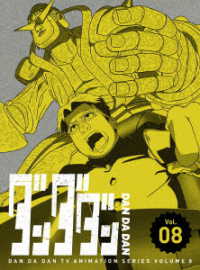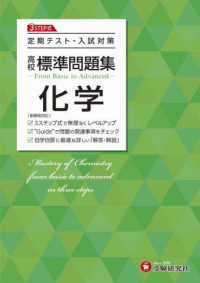- ホーム
- > 洋書
- > 英文書
- > Literary Criticism
基本説明
Carnell demonstrates that the formal conventions of narrative realism emerged in the Seventeenth century inresponse to an explosion of partisan writings that put into play competing versions of political selfhood.
Full Description
This book considers why narrative realism in literature is seen as a 'full account' of 'real life' and the individual self. Unconventionally, Carnell shows that the formal conventions of narrative realism emerged in the seventeenth century in response to an explosion of partisan writings that put into play competing versions of political selfhood.








